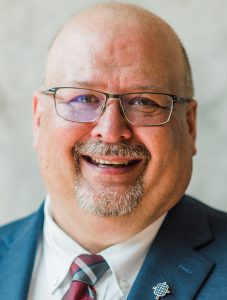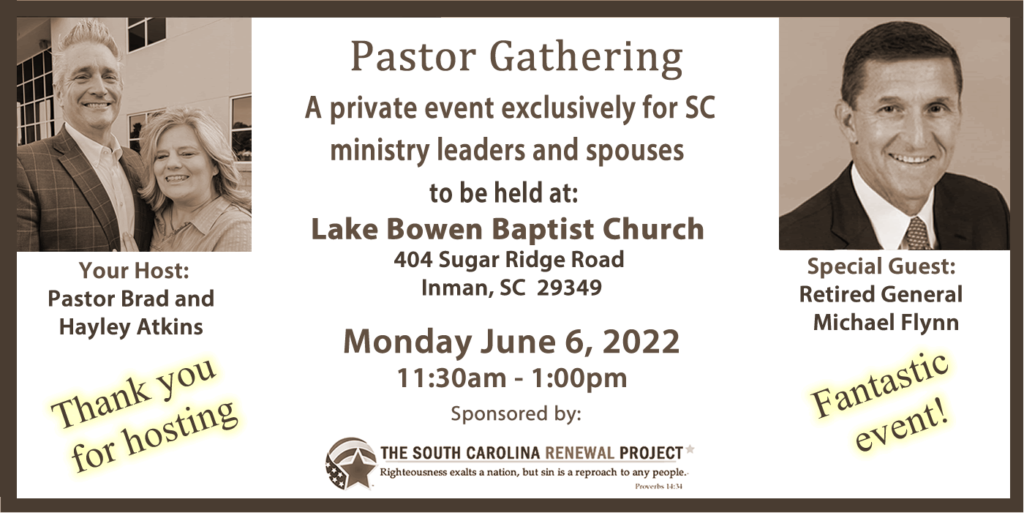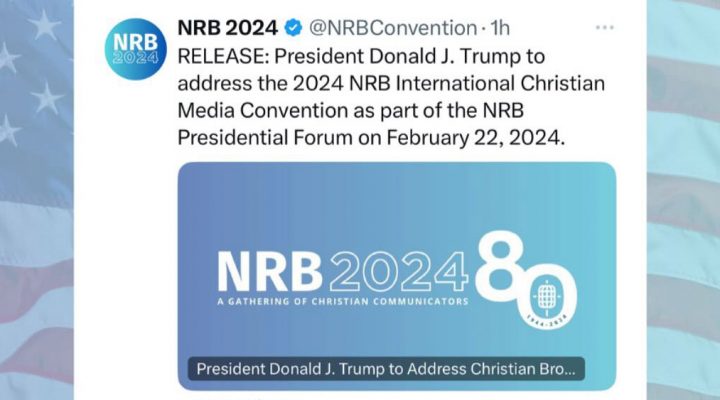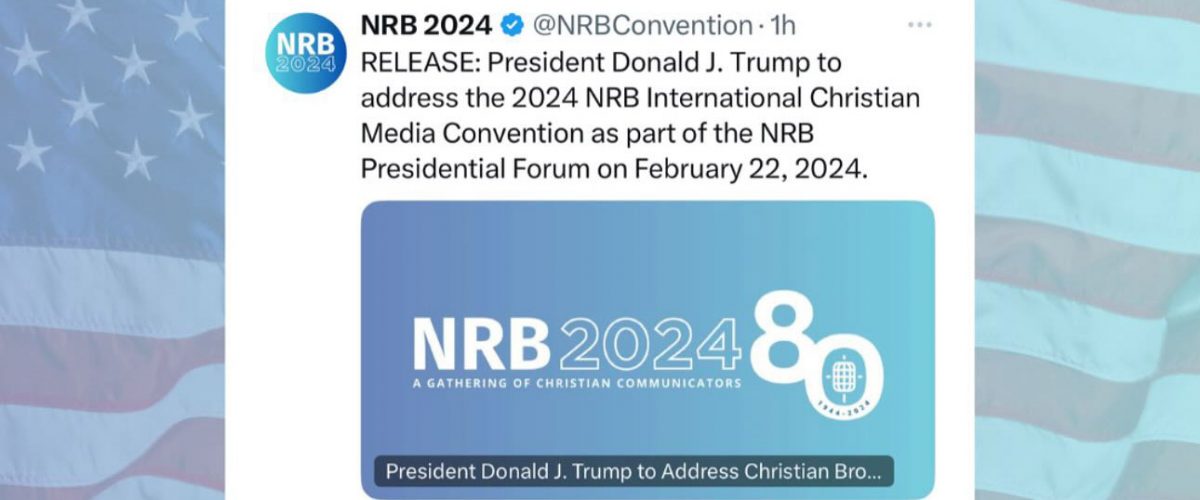Less than a week after the “He Gets Us” ads during the Super Bowl set off another round of debate about how to market Christianity, the head of the National Religious Broadcasters said Donald Trump was invited to address the NRB this week because — like Jesus — he gets them.
Trump is scheduled to address the NRB this Thursday in Nashville.
NRB executive Troy Miller told USA Today Trump is popular with the religious broadcasters, already a notoriously right-leaning group: “I can say, from all of the people I meet with and talk to, and from personal experience even in my own family with lifelong Democrats, Trump has this appeal. People feel he understands them. Even though some of his life stuff doesn’t fit into their personal lifestyle or morality, they still feel like he gets them.”
“People feel he understands them. Even though some of his life stuff doesn’t fit into their personal lifestyle or morality, they still feel like he gets them.”
Many evangelicals hate the multimillion dollar “He Gets Us” ad campaign — for different reasons than many progressive Christians also hate the ads — but they are sure Trump “gets” them, Miller implied.

Troy Miller
Two years ago, Miller went on Newsmax to denounce President Joe Biden for putting Christian faith “under attack” in an address to the nation the week before.
“Evangelicals are being attacked,” Miller said, declaring Biden’s Sept. 1, 2022, speech derisive to evangelical Christians who form a large part of Trump’s political base. In his speech, Biden differentiated between MAGA Republicans and more traditional Republicans who do not admire or follow Trump.
In that same September 2022 interview, the NRB head said Biden was “divisive” for opposing the agenda of evangelicals. “The things he said the country was moving backward on, on freedom of choice, on freedom of contraception, on privacy issues, on the rule of law, that really is evangelicals’ base. That’s the base of evangelicalism within the party and within the country, those founding fathers, those, freedoms that we have are the things we cherish in the evangelical world. And the president really looked directly at us when he said that.”
Miller also raised up the Christian nationalist belief that “our democracy is built on the foundation of faith. … The founders were people of deep faith. They looked at faith as a part of their life and a part of being a good citizen.” And he cited a common conservative conspiracy theory that a 2022 Congressional allocation to the Internal Revenue Service — which has been understaffed for decades — would result in more intrusive investigation of evangelicals.
“We’ve had a number of agencies that are looking into Christians,” he said then, citing specifically a letter from some Congressional leaders asking the IRS to review its designation of the Family Research Council — a conservative evangelical political advocacy group — as a church.
“Irregardless of how overt he is with his faith, he always made faith something he was a stalwart for.”
Last week’s USA Today article explored the perennial question of how an ethically and morally unfit man can be so admired by evangelicals, who form a key part of his political base. Trump has portrayed himself as a messianic figure sent from God to save America and American religion — even though he does not attend church and shows no outward expression of religious faith.
Chris Brennan, opinion writer for USA Today, said: “Trump doesn’t have to worry about his evangelical supporters holding him accountable. They’ve shown no inclination for that since he emerged as the Republican front-runner in 2016.”
He quoted Brad Atkins, pastor at Lake Bowen Baptist Church in Spartanburg County, S.C., who was one of 100 faith leaders endorsing Trump the previous Saturday. “Irregardless of how overt he is with his faith, he always made faith something he was a stalwart for,” Atkins said.
And regarding the many skeletons in Trump’s closet, the pastor explained: “I think everybody has a past that has an impact on their present. There’s probably a lot of regret that everyone has in their past that they don’t want to bring up.”
Atkins was the official spokesman for the group of 100 pastors and ministry leaders endorsing Trump before this week’s South Carolina Republican primary.

In a news release on the Trump campaign website, Atkins said: “President Trump is the only candidate with a proven record of fighting for our religious freedoms. He is gifted with the abilities to once again strengthen the American economy while protecting the security and freedom of American families.”
Of those 100 “faith leaders,” 60 are listed as pastors. While their counties of residence are listed, the names of their churches are not listed. The remaining 40 signers appear to be a mix of “ministry leaders,” “worship leaders” and “elders” — many with the same last names as the pastors.
To date, no high-profile Southern Baptist pastors have publicly endorsed anyone in the presidential race — a departure from 2016 and 2020.

Daniel Darling
Also last week, USA Today featured an opinion piece by Daniel Darling, director of the Land Center for Cultural Engagement at Southwestern Baptist Theological Seminary, arguing that the term “Christian nationalism” is too broadly defined and too easily used to label those on the Religious Right.
He wrote: “Advocating for public policy based on one’s faith is not Christian nationalism. A robust love of country isn’t Christian nationalism. Acknowledging America’s profoundly Christian roots isn’t Christian nationalism. And those who analyze politics and religion should be honest enough to admit this.”
Ironically, Darling landed at Southwestern Seminary — part of the Southern Baptist Convention — after he was fired as the NRB’s media spokesman in 2021 for speaking positively about the COVID-19 vaccine.
Another Southern Baptist figure preceded Miller as NRB president. That was Jerry Johnson, who previously taught at two SBC seminaries — Southern and Midwestern — and served as president of Criswell College in Dallas. Johnson also played an early role in the SBC’s “conservative resurgence.” As a young pastor without a seminary education, he was appointed a trustee on the Southern Seminary board, where he launched a campaign against seminary President Roy Honeycutt, saying: “One would have to be as blind as a mole not to see that Dr. Honeycutt just does not believe the Bible.”
Honeycutt was an accomplished Old Testament professor before becoming seminary president.


